第86章 Lecture XX(4)
Or read the account of God's beneficence in the institution of "the great variety throughout the world of men's faces, voices, and hand-writing," given in Derham's Physico-theology, a book that had much vogue in the eighteenth century. "Had Man's body," says Dr. Derham, "been made according to any of the Atheistical Schemes, or any other Method than that of the infinite Lord of the World, this wise Variety would never have been: but Men's Faces would have been cast in the same, or not a very different Mould, their Organs of Speech would have sounded the same or not so great a Variety of Notes, and the same Structure of Muscles and Nerves would have given the Hand the same Direction in Writing. And in this Case what Confusion, what Disturbance, what Mischiefs would the world eternally have lain under! No Security could have been to our persons; no Certainty, no Enjoyment of our Possessions; no Justice between Man and Man, no Distinction between Good and Bad, between Friends and Foes, between Father and Child, Husband and Wife, Male or Female; but all would have been turned topsy-turvy, by being exposed to the Malice of the Envious and ill-Natured, to the Fraud and Violence of Knaves and Robbers, to the Forgeries of the crafty Cheat, to the Lusts of the Effeminate and Debauched, and what not! Our Courts of Justice can abundantly testify the dire Effects of Mistaking Men's Faces, of counterfeiting their Hands, and forging Writings.
But now as the infinitely wise Creator and Ruler hath ordered the Matter, every man's Face can distinguish him in the Light, and his Voice in the Dark, his Hand-writing can speak for him though absent, and be his Witness, and secure his Contracts in future Generations. A manifest as well as admirable Indication of the divine Superintendence and Management."
A God so careful as to make provision even for the unmistakable signing of bank checks and deeds was a deity truly after the heart of eighteenth century Anglicanism.
I subjoin, omitting the capitals, Derham's "Vindication of God by the Institution of Hills and Valleys," and Wolff's altogether culinary account of the institution of Water:--
"The uses," says Wolff, "which water serves in human life are plain to see and need not be described at length. Water is a universal drink of man and beasts. Even though men have made themselves drinks that are artificial, they could not do this without water. Beer is brewed of water and malt, and it is the water in it which quenches thirst. Wine is prepared from grapes, which could never have grown without the help of water; and the same is true of those drinks which in England and other places they produce from fruit. . . . Therefore since God so planned the world that men and beasts should live upon it and find there everything required for their necessity and convenience, he also made water as one means whereby to make the earth into so excellent a dwelling. And this is all the more manifest when we consider the advantages which we obtain from this same water for the cleaning of our household utensils, of our clothing, and of other matters. . . . When one goes into a grinding-mill one sees that the grindstone must always be kept wet and then one will get a still greater idea of the use of water."
Of the hills and valleys, Derham, after praising their beauty, discourses as follows: "Some constitutions are indeed of so happy a strength, and so confirmed an health, as to be indifferent to almost any place or temperature of the air. But then others are so weakly and feeble, as not to be able to bear one, but can live comfortably in another place. With some the more subtle and finer air of the hills doth best agree, who are languishing and dying in the feculent and grosser air of great towns, or even the warmer and vaporous air of the valleys and waters. But contrariwise, others languish on the hills, and grow lusty and strong in the warmer air of the valleys.
"So that this opportunity of shifting our abode from the hills to the vales, is an admirable easement, refreshment, and great benefit to the valetudinarian, feeble part of mankind; affording those an easy and comfortable life, who would otherwise live miserably, languish, and pine away.
"To this salutary conformation of the earth we may add another great convenience of the hills, and that is affording commodious places for habitation, serving (as an eminent author wordeth it) as screens to keep off the cold and nipping blasts of the northern and easterly winds, and reflecting the benign and cherishing sunbeams and so rendering our habitations both more comfortable and more cheerly in winter.
"Lastly, it is to the hills that the fountains owe their rise and the rivers their conveyance, and consequently those vast masses and lofty piles are not, as they are charged such rude and useless excrescences of our ill-formed globe; but the admirable tools of nature, contrived and ordered by the infinite Creator, to do one of its most useful works. For, was the surface of the earth even and level, and the middle parts of its islands and continents not mountainous and high as now it is, it is most certain there could be no descent for the rivers, no conveyance for the waters; but, instead of gliding along those gentle declivities which the higher lands now afford them quite down to the sea, they would stagnate and perhaps stink, and also drown large tracts of land.
"[Thus] the hills and vales, though to a peevish and weary traveler they may seem incommodious and troublesome, yet are a noble work of the great Creator, and wisely appointed by him for the good of our sublunary world."